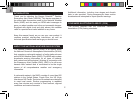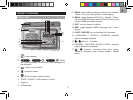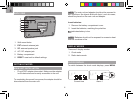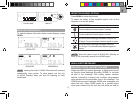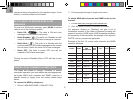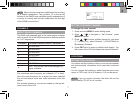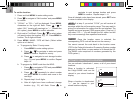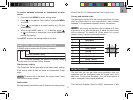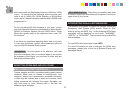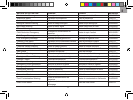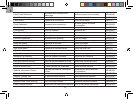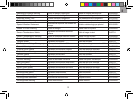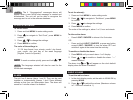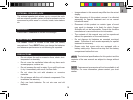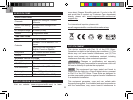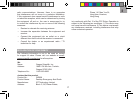
N
E
10
alert every week on Wednesday between 10AM and 12PM
(noon). To receive the test message make sure that your
radio
is set to NOAA ON, NOAA Standby or NOAA Mute
mode, that a Channel
has been selected and a SAME code
programmed in.
To find out the specific test schedule in your area, contact
your
local National Oceanic and Atmospheric Administration
(NOAA)
or National Weather Service (NWR) office. These
offices are usually listed in the telephone book under “US
Government”.
If
you have any questions regarding alarm tests or to verify
if
a test was conducted, contact the programming office of
your local NOA
A Weather Radio station.
REMEMBER For your system to be effective, you must
place the emergency radio in a location where it can receive
an emergency alert signal, you can hear its siren, and see
its flashing indicator lights.
RECEPTION PROBLEMS AND SOLUTIONS
MANY THINGS AFFECT RECEPTION!
RECOMMENDATION
INTERPRETING NOAA ALERT MESSAGES
This product is equipped to receive all required NOAA and
Emergency
Alert System (EAS) events. When an EAS
event is sent by the NWS, any 1 of the following NOAA alert
messages
will be displayed on your radio: “WARNING”,
“WATCH”, or “ADVISORY”. The unit can store up to 8 NOAA
alert messages.
To view NOAA alert messages, press MSG.
For
more information on how to interpret the NOAA alert
messages,
please refer to the list of National Events and
Messages below:
Forests, deserts, and hills / mountains tend to greatly reduce
reception.
Metal roofs on homes or buildings may limit
reception
indoors for transmissions and alerts. Reception
in
cities may be reduced due to steel and concrete, while
higher
elevations will enhance the signal. Reception can
vary
from room to room. Moving even a few feet can
enhance signal reception.
Place
the your weather radio near
a window, away from other electronic equipment, and on an
upper level of your house.



